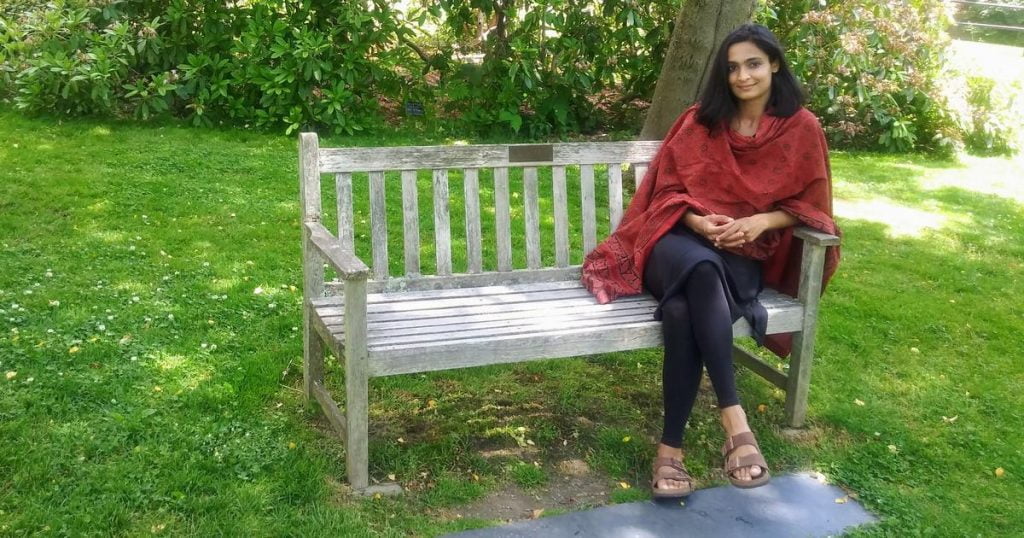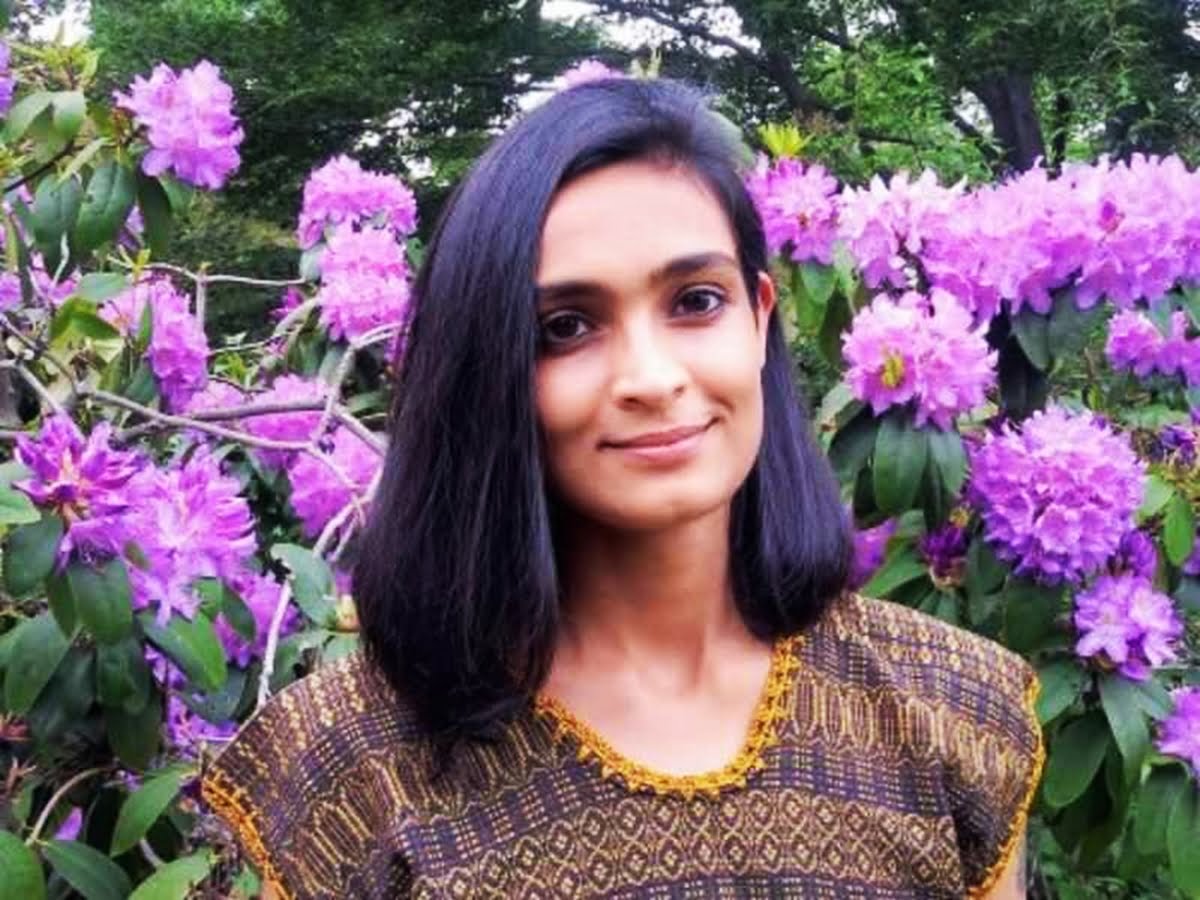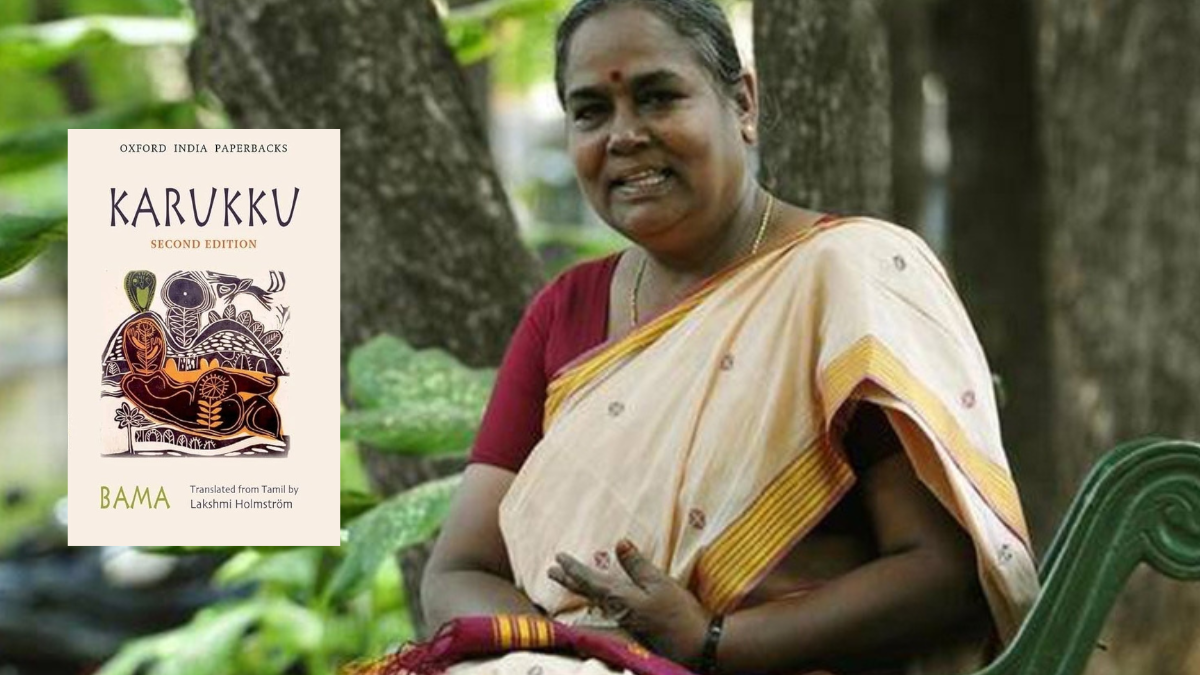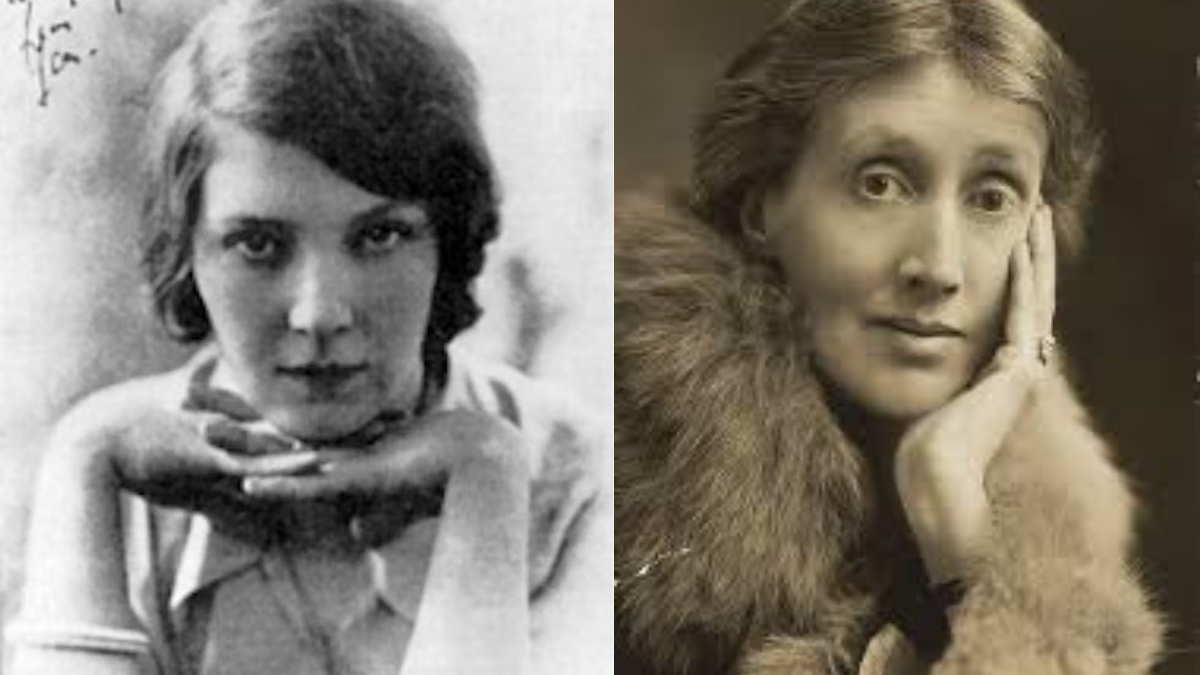Writer Kritika Pandey was announced as the 2020 Commonwealth Short Story Prize winner, both regional (Asia) and overall on 30 June 2020. At 29, she is a Pushcart nominated writer, who recently completed her MFA for Poets and Writers from the University of Massachusetts, Amherst. An alumnus of Young India Fellowship, Ashoka University, she received the £ 5,000 prize for her story “The Great Indian Tee and Snakes”. She also has other feathers to her hat such as the 2020 James W Foley Memorial Award and the 2018 Harvey Swados Fiction Prize.
Also read: Santhi Soundarajan & The Misogyny Of Sex Verification Tests In Sports

As an Ashoka University graduate I thought it of great honour to interview Kritika Pandey and discuss her prize winning story, feminism in 2020, the process of writing and becoming a writer and much more.
Also read: In Conversation With Sulagna Chatterjee: Screenwriter Of ‘Firsts’ Season 3
Vedika: When did you discover you liked writing?
Kritika Pandey: I think I was really young when I realised that I had a natural flair for engaging with written language. Reading and writing was something I could do efficiently. I could take down notes very quickly when teachers would dictate something in class, and I didn’t really mind reading and re-reading stories and poems from the textbook. Later on, what I realised was that if I were to read and re-read, I’d rather do that with literature than with math problems, you know. It wasn’t difficult for my parents to figure out that I wanted books, and that if they were to buy me a certain number of books outside of my course curriculum, I’d be eternally busy with them. They appreciated me keeping myself busy with books and took a lot of pride in it, some times, I remember.
I’d like to mention that I wrote a novel in class 10, and it was very bad –it was called “8D” because it was about being a grade 8 student. But, the fact that I wrote an entire novel was quite the confidence booster. I wrote it on my desktop and got it printed from a cyber café; got it spiral bound so it looked like a ‘proper’ book. That was quite the defining moment. Now that I’m working on a novel, that is hopefully going to be better. I think about that time a lot–about how quickly I wrote that novel and how passionate I was about the project. There is something about being young and just blindly passionate. It was beautiful that I could harness that energy at such a young age. Some of that passion remains till date, which I’m very grateful for.
Vedika: How is your social position determined by your caste and religious status, and how have these factors benefitted and/or put you at a disadvantage? What role does your own identity play in your work?
Kritika Pandey: I understand that I have never been at a disadvantage due to my caste or religious status because I know for a fact that my grandfather migrated from the village to the city, and that he was the only Brahmin in the village that he was born in. He was an orphan and was brought up by non-Brahmins, but he continued to keep his second name and got married into a Brahmin community. So, I have personally gained a lot since my grandfather was an upper caste in a village full of non-Brahmin people and I probably can’t even put a finger on all the benefits I have gained from that. Since I was a kid, I’ve seen my father move through the world with a certain confidence, an authority over his work, and a certain kind of reassurance. The same is with my mother. All of this has given me an exposure I wouldn’t have had otherwise.
However, one identity marker that has been a challenge since the beginning has been my gender. I don’t think we talk enough about how important it is for upper caste communities to control the sexualities of women in order to perpetuate caste. The caste system wouldn’t survive without the patriarchy. That is the pressure of being an upper caste girl in a conservative setting, in a small town –and that has always suffocated me. Every move of mine was monitored and I couldn’t do or say a lot of things, because upper caste women have to be the epitome of honor and dignity (such BS). So that has been the biggest impediment for me in order to fully occupy the world and just be whoever I wanted to be. I couldn’t do the smallest things like picking up a guitar and walking up to the near most park and playing it there. That is looked down upon where I come from (Ranchi, Jharkhand) because that would attract male attention, and what kind of an upper caste girl does that, I’d have been asked. You gain a lot of brownie points if you stay cooped up in the house and people don’t even know of your existence–then you’re a good girl! That’s what I was supposed to be and could never be. That’s why I’ve ended up here because I’ve always tried breaking out of that environment to breathe freely.
You gain a lot of brownie points if you stay cooped up in the house and people don’t even know of your existence–then you’re a good girl! That’s what I was supposed to be and could never be. That’s why I’ve ended up here because I’ve always tried breaking out of that environment to breathe freely, says Kritika Pandey.
Vedika: Tell us something about the experience you gained during your Young India Fellowship. How did that shape both you, and your writing.
Kritika Pandey: Ashoka University was a defining moment in my life as a writer. It was a year when I sort of officially transitioned from the sciences to the humanities. It was nothing like I’d expected it to be–way better, academically speaking. I don’t think I made as many social connections or friends. Probably has something to do with my personality, but it also has to do with the fact that there are a lot of these insular groups and it can be quite overwhelming, especially because it’s just one year. But academically, I was very pleased with how I learnt things there and how my understanding of certain themes and subject matters (that I have always been interested in) got really nuanced and complex in wonderful ways. I also discovered new interests! Gender and sexuality have always piqued my interest but film studies is something that I unearthed there. It was that safe environment in which I could take risks with my writing, and I did.
I wrote really strange things–conversations between Neal Cassady and Mahatma Gandhi, and I could do that because I wasn’t yet a writer–just a liberal arts student. So, there was no (or very little) self-consciousness about what it is that I was doing and that really helped me because being self-conscious is never a good thing for an artist. It’s good to do a lot of work when you’re not taking yourself too seriously, as later on when you inevitably take yourself too seriously (because that’s how we are taught adulting), you can look back on those times and draw inspiration. Rely on those experiences and those instincts as much as you can going forward. One of my teachers were Madhavi Menon and I absolutely fell in love with her. The experience was education for life because the way it challenged my understanding of the world and fueled my curiosities, I now don’t think that listening to a podcast about Aristotle’s philosophy is something I can’t do (or not something I hold back from). I feel that every discipline that I can possibly think of has something to do with me, and my writing, and my existence in the world. The interdisciplinary approach I gained during the fellowship is just so engrained in me that I don’t think twice before learning something new because of how little exposure I’ve had to it. That is beautiful. That is such a gift for a writer –to be so fully interested in the world.
Vedika: In previous interviews you have mentioned how you pursued an MFA to escape an arranged marriage. What role does gender play in academic pursuits keeping in mind the Indian subcontinent?
Kritika Pandey: I’ve answered a bit of this, when I talked about what it is –being an upper caste girl in a conservative setting. It’s common knowledge, but only now are we beginning to see portrayals of women who are actively trying to resist the “shaadi karlo” rut. In Pop culture films and series, for example Netflix’s latest “Mismatched” we see young women being nagged by parents and relatives, which is always relatable but there exists a problem. There’s now a binary, that an ambitious woman ought to embrace identities that have masculine implications and nothing else, is so not nuanced. All the women that I’ve personally seen that have fought through patriarchy and accomplished certain things, have never embodied this feminine vs masculine binary. They are everything and more. In order to be a zealous woman who is clearly being challenged because she is a woman, we shouldn’t have to be like men. Not only that, none of us are. We just aren’t like men. We approach this in a very different way and I think we need to be appreciated for that, and we are not! For example, a woman has to consider her family, no matter what she does –and I did.
Even though I was fighting against them the whole time, I couldn’t do anything that would put them at risk in the close-knit community that they’re a part of. For instance, I don’t wear sleeveless when in Ranchi, but I write fearlessly and don’t mince my words –so I feel we just have to pick our battles. But that doesn’t mean you’re oversimplified, you have to necessarily be nuanced and that is often what goes unnoticed. Common portrayals of these struggles against patriarchy are so underwhelming in their unidimensional narratives.
Vedika: The Great Indian Tee and Snakes is a response to the contemporary sociopolitical upheavals in India. You’ve also mentioned that you attended the Black Lives Matter protests in the US. How does being an activist influence your writing?
Kritika Pandey: More than being an “activist”, it’s just about being the person that I am –this is who I am. This is who I’ve always been, but I’ve not always been able to exercise this part of myself –somebody who steps out on the streets and raises slogans against the establishment. Going to Ashoka was an important step in figuring out what my politics are and how I’m going to stick to them. It also provided me with an insight into what are the things I’m going to do in order to continuously engage with them. Just before I came to the US, Umar Khalid and Kanhaiya Kumar were going through their media trials and I was very clear in my mind which side I am on.
In the US, I fortunately ended up in a very progressive pocket of the country, but not necessarily only liberal. A month after my being here, I got in touch with a very big group of radical leftists –most of whom belonged to the economics department. Surprisingly speaking, in the University of Massachusetts Amherst, the economics department is very heterodox, they’re all Marxists. So, moving in the same circles as them really helped me remain political in pronounced ways. I never really hung out with my MFA (Masters in Fine Arts) cohort because I just found them to be boring. Most of them were also white and American and I don’t know how to talk to them for the most part, resulting in a lack of connection. Whereas the economics department had people from all over the world: it’s a truly international program. That’s why I was just naturally drawn to this group, with so many folks of color and such political engagement.
Being at the BLM protests was a very difficult decision to make, since it was right in the middle of the pandemic, but when I saw that video (TW: police brutality) of George Floyd being murdered by the policeman, I couldn’t really stay home. I think that one of the reasons I’m a writer is that I’m always in touch with my emotions. That’s another reason why ambitious women shouldn’t be swiftly categorised as masculine-seeming. So, my emotions and instincts drive a lot of my decisions and activism is one of them. You can’t really sustain activism if you’re not emotionally invested in the cause. It’s an outlet for me to express myself. I’ve never really written about an activist character or an overtly activist setting, and I don’t know if that’s necessarily interesting to me right now. When I’m writing, I’m interested in people who are the opposite of activists. Even though lot of things in writing become autobiographical, this decision is driven by that fact that maybe I need a break from the kind of people I hang out with, or the conversations we have. Or maybe that I need a very long time to process these personalities that I hang out with, before I can turn them into characters in a fictional setting.
That’s why presently I’m more into characters that aren’t overtly political, like the girl with the black bindi. She is describing to you what she sees, but you can tell that she’s neither bigoted nor an active participant in challenging the bigotry. She is just moving through the world in a very ordinary way. I’m interested in the ordinariness of her being and most people that I grew up with, including my parents. They don’t get worked up about politics, because they don’t have to, as they don’t have enough skin in the game. What interests me, is how these people then process the implications of the politics they don’t have a refined vocabulary about.
Vedika: What are some differences you notice in the responses to your work by Indian audiences, Indian audiences in the States and American audiences?
Kritika Pandey: I was once watching a Youtube video of a review of The Great Indian Tee and Snakes, and the white man was just so pissed that the story wasn’t written for him. He didn’t feel like he connected with it; he just didn’t like the story. He was like, “I don’t understand the context, I don’t understand the subject matter, she has to explain a bit more.” and I was like “Wow! This makes me so happy, that this guy feels alienated by my work because that’s what their works of literature have historically done to people of color all over the world.” They have always been Eurocentric and male-centric, thus to an extent have also alienated women. So, to write a story that alienates a white male is transgressive in ways I didn’t even imagine I was doing –and I’m happy that happened. So, it’s kind of safe to say that my least favorite kind of audience is the American audience.
To write a story that alienates a white male is transgressive in ways I didn’t even imagine I was doing –and I’m happy that happened. So, it’s kind of safe to say that my least favorite kind of audience is the American audience, says Kritika Pandey
Featured Image Source: Times Of India
About the author(s)
Vedika Gupta studied literature and media at Ashoka University. A national level tennis player, an Air Force aspirant, an avid writer, she’d probably have dipped her toes in new waters when you meet her. Her experimenting in cooking varies from parathas to pasta and everything in between. She can do an 80kg deadlift, but won’t bear the weight of patriarchy and sexism. She can be found on Facebook, LinkedIn, Twitter and Instagram.




